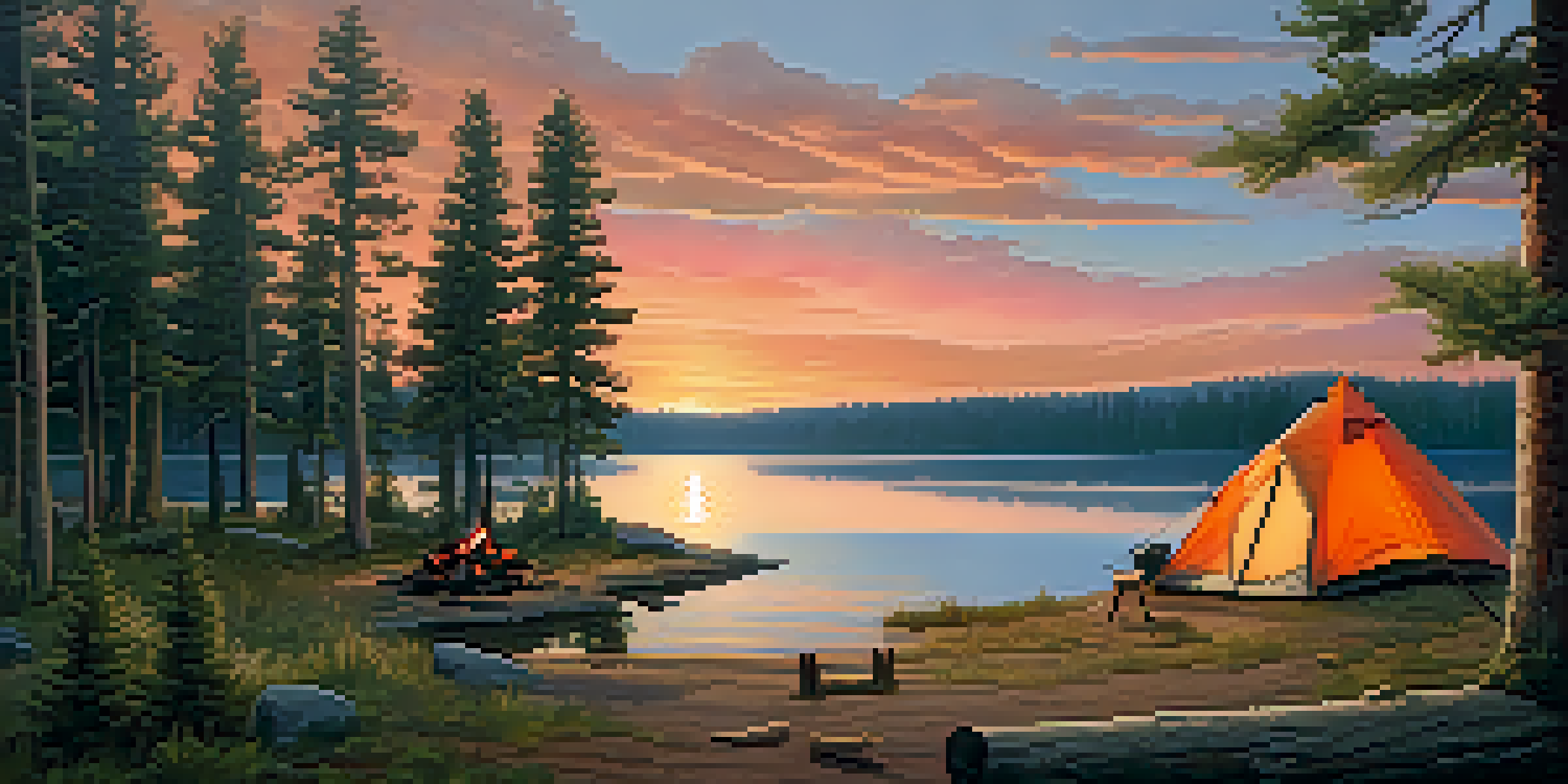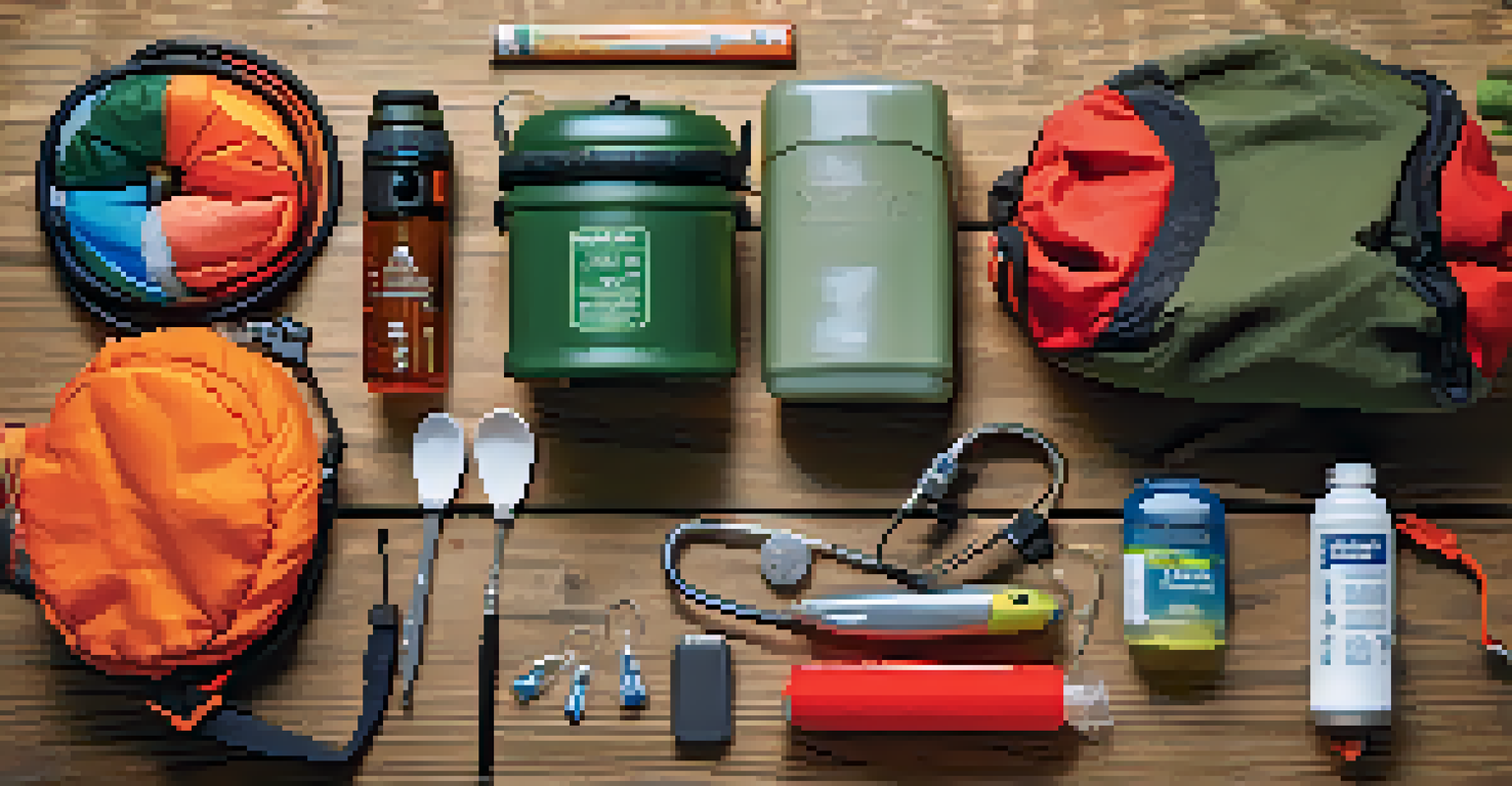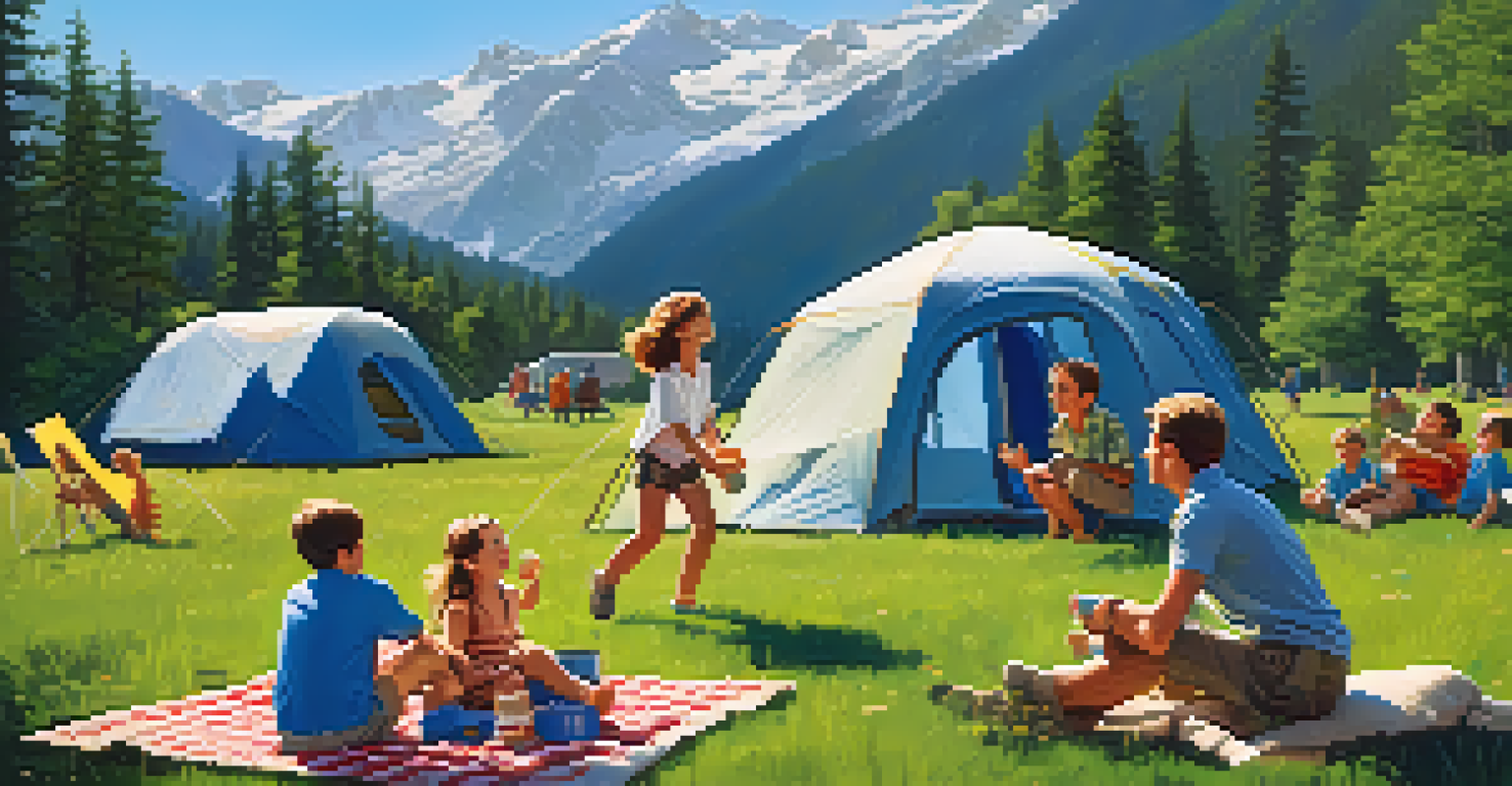Planning the Ultimate Camping Trip: A Complete Guide

Choosing the Perfect Campsite for Your Adventure
Selecting the right campsite is crucial for a successful trip. Look for locations that match your desired experience, whether it's a serene lakeside or a rugged mountain setting. Research campgrounds that offer amenities like bathrooms, fire pits, and picnic tables to enhance your comfort.
The clearest way into the Universe is through a forest wilderness.
Consider accessibility as well; a site that's too remote might be adventurous but could also lead to logistical challenges. Make sure to check the accessibility for all your gear and the distance from parking to the campsite. A good balance between adventure and convenience will set the tone for your trip.
Don't forget to review the campsite regulations and any permits required. Some beautiful spots may have restrictions to protect the environment or require reservations. Being well-informed can save you from last-minute surprises.
Essential Gear and Packing Tips for Campers
Packing wisely can make or break your camping experience. Start with the basics: a reliable tent, sleeping bag, and cooking equipment. Consider the weather conditions during your trip; a waterproof tent and warm sleeping bag are must-haves for colder climates.

Don’t overlook personal items like a first-aid kit, insect repellent, and sunscreen. A good rule of thumb is to pack for both comfort and safety. Bringing a multi-tool can also come in handy for various tasks around the campsite.
Choose the Right Campsite
Selecting a campsite that balances adventure with convenience enhances your overall camping experience.
Finally, create a checklist to ensure you don’t forget anything important. Breaking down your gear into categories like cooking, sleeping, and personal items can help maintain organization. Remember, the less you overpack, the more enjoyable your trip will be!
Planning Meals and Snacks for Your Camping Trip
Meal planning is an important part of your camping checklist. Opt for easy-to-cook meals that require minimal prep, such as foil packets or one-pot dishes. Pre-cooking some meals at home can save time and help you enjoy your surroundings more.
Take only memories, leave only footprints.
Don’t forget to pack plenty of snacks! Trail mix, granola bars, and fresh fruit are excellent choices that are easy to carry and provide energy. Staying fueled during your adventures will keep spirits high and make for a more enjoyable experience.
Lastly, consider how you’ll keep food fresh. A cooler with ice packs is great for perishables, while dry foods can be stored easily. Being smart about your food storage will not only keep you safe but also enhance your overall camping experience.
Understanding Campfire Safety and Regulations
Campfires can be the heart and soul of a camping experience, but safety is paramount. Always check local regulations regarding campfires before you start one. Some areas may have open flame restrictions, especially during dry seasons.
When you do have the green light for a fire, make sure to build it in a designated fire pit. Keep the fire manageable and never leave it unattended; a small spark can quickly turn into a wildfire, so always have water or sand nearby to extinguish it.
Pack Smart for Comfort
Bringing essential gear and organizing your packing can significantly improve your camping comfort and safety.
After your campfire has served its purpose, ensure it's completely out before leaving the site. Douse it with water, stir the ashes, and feel for any warmth. Leaving a clean and safe campsite is a courtesy to nature and future campers.
Staying Safe and Connected in the Great Outdoors
Safety is key when enjoying the great outdoors, so plan ahead. Always tell someone where you’re going and when you plan to return. Carry a map and compass, or a GPS device, especially if you’re venturing into less-traveled areas.
Consider packing a portable charger or solar charger for your devices. While it's nice to unplug, having a way to contact someone in case of emergency can provide peace of mind. Many campgrounds also offer Wi-Fi if you need to check in.
Another safety tip is to familiarize yourself with local wildlife. Knowing what animals might be in the area helps you prepare and stay safe. Store food securely and avoid any areas that seem dangerous to minimize encounters.
Engaging Activities to Enhance Your Camping Experience
Camping isn't just about sitting around the fire; it’s about making memories and enjoying nature. Plan a variety of activities like hiking, fishing, or swimming to keep everyone engaged. Games like frisbee or card games can also be a fun way to bond with your fellow campers.
Consider bringing along a book on local flora and fauna or a star chart for stargazing. Engaging with your environment will deepen your appreciation of nature. Plus, it’s a fantastic way to learn something new!
Embrace Sustainability Outdoors
Following eco-friendly practices and the Leave No Trace principles is vital for preserving nature while camping.
Don’t forget to capture your experiences through photos or journaling. Documenting your adventures can create lasting memories and provide stories to share with friends and family back home.
Creating a Sustainable Camping Experience
Sustainability should be at the forefront of every camping trip. Follow the Leave No Trace principles: pack out what you pack in, respect wildlife, and minimize campfire impact. Taking care of the environment ensures that these beautiful areas remain pristine for future generations.
Choose eco-friendly products whenever possible—biodegradable soaps, reusable utensils, and solar lights can all make a difference. Small changes in your camping habits can lead to significant positive impacts on the environment.

Moreover, educating yourself about the local ecosystem can enhance your experience. Understanding the native plants and wildlife helps you appreciate your surroundings and reinforces your commitment to sustainability.